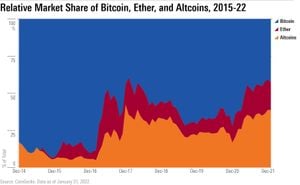On February 24, 2025, the third anniversary of Russia's full-scale invasion of Ukraine, the United Nations General Assembly witnessed significant developments as it adopted two competing resolutions aimed at addressing the enduring conflict. This momentous occasion underscored the shifting alliances and varying perspectives within the transatlantic community over the optimal route to peace.
The resolution put forward by the United States, which conspicuously omitted any direct mention of Russian aggression, only secured approval after substantial amendments driven by European Union member states. These alterations prompted the US to abstain from its own motion and cast its vote against the separate resolution introduced by Ukraine, thereby showcasing the deepening rifts within western alliances over the Ukraine issue. Meanwhile, the original text of the US resolution was later passed by the Security Council—the first resolution of its kind since the Russian invasion began on February 24, 2022.
The two draft resolutions debated during this high-stakes diplomatic session varied markedly. Ukraine’s resolution, aptly titled “Advancing a Comprehensive, Just and Lasting Peace in Ukraine,” was cosponsored by numerous European nations and laid bare the long-term consequences of the invasion. It reiterated the need for global acknowledgment of Ukraine’s sovereignty and called for rigorous accountability for crimes committed under international law. The document ominously noted, “the full-scale invasion of Ukraine by the Russian Federation has persisted for three years and continues to have devastating and long-lasting consequences not only for Ukraine, but also for other regions and global stability.”
On the other hand, the US resolution, titled “Path to Peace,” adopted a more cautious tone, focusing primarily on lamenting the toll of the conflict without placing blame. It called for hastening the end of hostilities and envisioned achieving peace between Ukraine and Russia. Both resolutions were products of intense negotiations with competing amendments suggested by Russia and the European Union. Russia aimed to include language addressing the underlying causes of the conflict, whereas EU representatives sought to include terminology from the Ukrainian text acknowledging the invasion.
When it came time to vote, the Ukrainian resolution passed resoundingly with 93 affirmative votes against 18 dissenting. Remarkably, the US did not simply abstain but actively opposed this resolution alongside Russia, alongside countries such as Israel and North Korea. This marked a notable shift from earlier votes: just last year, the US had supported a similar text garnering 141 votes from UN member states.
After abstaining from the US resolution, which nevertheless passed with 93 votes for, eight against, and 73 abstentions, the General Assembly was presented with the reality of divergent expectations. Notably, 65 nations—including South Africa—abstained, with their representatives arguing for more inclusive approaches to peace negotiations.
Ukrainian Deputy Foreign Minister Mariana Betsa, addressing the General Assembly, emphasized the importance of how the international community reacts to Russian aggression, stating, “the way Russian aggression is answered will define the future of Ukraine…Europe and our common future.” Her remarks reflect the sentiment echoed by many who fear the repercussions of conceding to aggressors.
Later, attention shifted to the Security Council where the US-drafted resolution was set for consideration. Despite various proposed amendments reflecting the European position, those calls were successfully voted down, and the resolution was passed intact by the 15-member body: 10 votes for, no opposing votes, and five abstentions. Following the vote, US Ambassador Dorothy Shea expressed gratitude for the Council's support, noting it “puts us on the path to peace.”
During the same day’s proceedings, the head of UN Peacekeeping, Rosemary DiCarlo, succinctly summarized the grim impact of the conflict. She reported the loss of at least 12,654 Ukrainian civilians since the invasion began, demonstrating the harrowing toll of violence over these three years. She insisted any forthcoming peace must be sustainable, just, and comprehensive—aligned with the UN Charter and international norms, echoing sentiments expressed throughout the assembly.
This landmark day of diplomatic engagements highlighted the fractures within the international community concerning the responses to Russia's actions. The General Assembly reaffirmed its support for international law and Ukraine’s territorial sovereignty; yet, with competing resolutions, it also exposed the challenges of achieving unified action amid differing national interests. The path to peace remains complex, with the repercussions of today’s decisions likely influencing global security dynamics for years to come.



